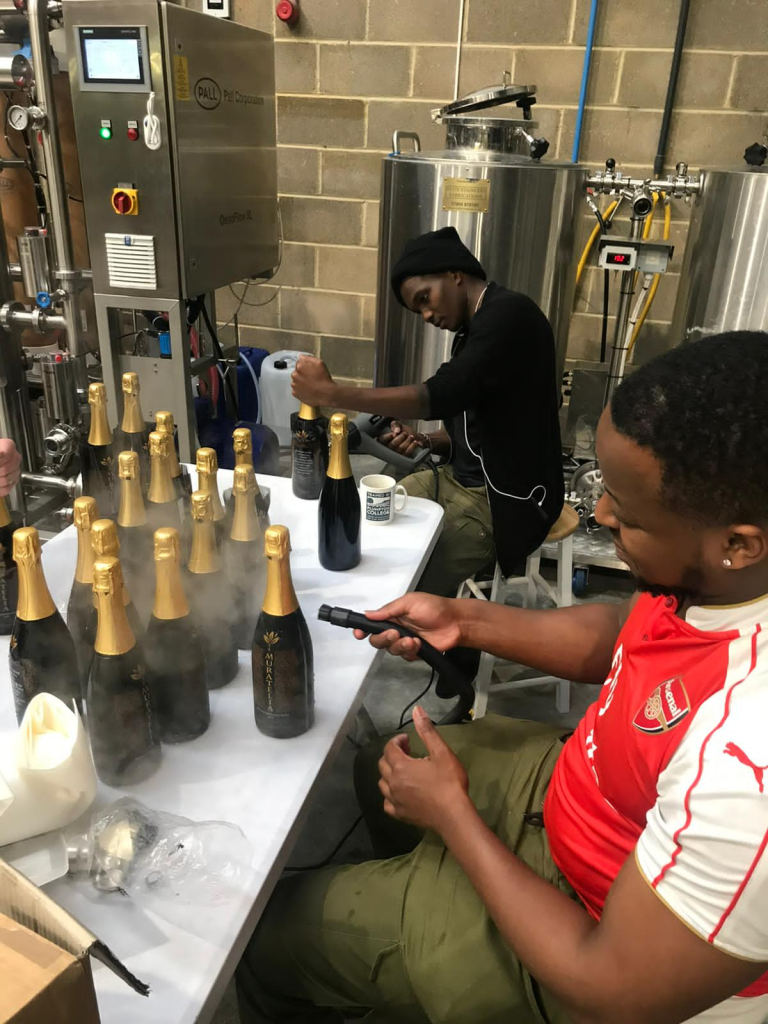Immigrant businesses succeeding in the UK are becoming a defining force in the country’s economy, where thanks to a diverse customer base and connected markets, immigrants have the chance to build successful businesses.
In short, immigrants are three times more likely to start a business in the UK than locals. International students have founded more than half of all startups emerging from UK universities. Some of the UK’s most successful unicorn companies, including Shazam and Funding Circle, were launched by immigrant founders. They prove how welcoming the environment is for fresh ideas and innovation.
Thinking of starting a business in the UK? Then draw inspiration from these stories of three immigrant businesses succeeding in the UK.

Genuine Care: Benjamin Kuti’s £18,000/week Care Workers Recruitment Agency
Benjamin Kuti moved to Derby, England in 2008, to study Mechanical and Manufacturing Engineering. Following his mother’s advice, he enrolled at the University of Derby and successfully completed his degree in 4 years. His initial trajectory seemed set when he secured a position at Rolls Royce, Derby as a computational engineer. This was clearly a role that many would consider as the pinnacle of engineering success.
However, like many immigrants supporting family back home, Benjamin’s salary at Rolls Royce wasn’t sufficient enough to cover his bills and send more back home in Nigeria. In 2016, he made a humble decision to take on a part-time cleaning job at a care home to supplement his income. What might have seemed as a step down for someone with his qualifications would prove to be the stepping stone to a business empire.
At the care home, Benjamin noted a constant shortage of staff. When he recommended a friend for a position, the management was impressed with the quality of his referral. They asked for more recommendations and Benjamin successfully placed two more workers. This moment sparked an entrepreneurial revelation: there was a genuine need for reliable recruitment services in the healthcare sector.
Initially keeping his job, Benjamin began recruiting part-time, helping connect job-seekers, most of whom were fellow Nigerians, with care homes in need of staff. The turning point came when his former manager, Sally, transferred to another branch and requested five additional workers from him. When Benjamin realized he could earn half of his monthly Rolls Royce salary in just one week of recruitment, the decision to leave his engineering career became clear.
His success wasn’t just about the money. Benjamin found deep satisfaction in creating opportunities for others, particularly fellow Nigerians struggling to establish themselves in the UK. He runs what is now known as Genuine Care, a recruitment agency generating approximately £18,000 weekly, in partnership with a Sudanese friend.
How King’Ori Wambaki Brewed His Way to Success
Muratina, a fermented alcoholic beverage derived from the fruit of the Kigelia Africana (sausage tree), had been a staple at Kikuyu community celebrations, from births to marriages. After living in the UK for nearly three decades, King’Ori Wambaki decided to transform this traditional drink into a successful business.
When he first shared his intentions, his parents warned him about the misconceptions surrounding the traditional brew. However, his peers encouraged him to explore the possibilities. Through his company, Bandari ya Pombe, Wambaki began the process of modernizing Muratina.
One of his biggest challenges was obtaining a licence due to the UK’s strict liquor production regulations. He found a creative solution by partnering with an established production company that helped him navigate the legal requirements and manage production costs. Rather than importing ingredients from Kenya, he initially used UK-sourced ingredients and condiments to create his product, which he branded Muratelia.
The timing of his launch coincided with the UK’s COVID-19 lockdown restrictions. However, what could have been a setback turned into an opportunity. Wambaki adapted by focusing on e-commerce, street trading and festival vending, establishing direct connections with his customers without relying on traditional venues. The Kenyan community in the UK became his initial customer base and they helped him raise awareness and spread the word about Muratelia.
The product stood out with its elegant black and gold champagne-like bottle. Muratelia, with its 12% alcohol concentration, delivered a refreshing taste that paired well with red meat and salad and offered a sweet, velvety sensation of exotic fruits and honey. The drink gained popularity among UK customers under 35, selling for between 10 and 25.
Wambaki now owns three restaurants and four shops in the UK that employs numerous people. His latest invention is ‘Bw. Chazea,’ a refined version of chang’aa, a traditional Kenyan spirit, fused with passion fruits. Through a five-time distillation process and elegant packaging, Wambaki is working to overcome the negative perception associated with traditional brews. He’s also planning to expand production to Kenya and sell his products at local prices. He’s also developing new products, including Mnazi, a coconut-based drink that is popular in Kenya’s coastal region.

Daniel Moses: From Taxi Driver to Real Estate Mogul
Edo State native, Daniel Moses first came to the UK in 2004. After living in the UK for eight years, in 2012, Moses returned to Nigeria to venture into the oil and gas sector. He began trading petroleum products – kerosene, diesel, and petrol – transporting them across Nigeria. However, fate had other plans. A
devastating setback struck when he lost two 65,000-litre shipments of petroleum products, resulting in a staggering £150,000 loss. The financial blow hit him so hard that he nearly lost his home in England while struggling to keep up with mortgage payments.
Forced to shut down his oil business, Moses returned to the UK to rebuild his life from scratch. In what might seem like a step backwards, he began driving taxis. Yet, this period of adversity would prove to be what he called “a massive gift from God.”
The turning point came in 2015 when drawing lessons from his previous setbacks, Moses ventured into real estate, gradually building what would become Property Wealth Education alongside his partner Kevin Kludje. From having just two employees in 2020 – Moses and Kludje themselves – the company has since expanded to seven in-house employees and achieved a turnover of nearly £500,000 since its February 2020 launch.
Today, Moses has transformed his initial £150,000 business into an enterprise worth over £7 million. He’s become a member of Forbes’ coaches council and a multiple Amazon best-selling author.

Want to Join the Ranks of Immigrant Businesses Succeeding in the UK?
The stories above bear witness to the entrepreneurial spirit that fuels UK’s future. Immigrant businesses succeeding in the UK are not an exception; they are becoming the norm. They create jobs, diversify the market, bridge cultures and most importantly redefine what’s possible.
You don’t need a million-dollar idea or a network of insiders. You need a vision, a plan and the right guidance. Whether you’re an international student with a side hustle, a permanent resident looking to formalize a craft, or a newcomer dreaming of launching a food stall, we’ve got you covered. Our complete guide covers the following:
- How to choose a business structure
- How to register your business
- How to open a business account
- Everything related to taxes, permits and licences
- How to fund your businesses and information particular to international students, residents and non-residents.
Get Started Here.












